Early in my chicken-keeping adventures, I learned the hard way that there is a big difference between chicken wire and hardware cloth. I now understand that chicken wire is intended to keep chickens confined to an area, not to prevent predators from reaching chickens. My failure to appreciate the differences prior to constructing our first run was costly and my hope is that others can learn from my mistake.
I was no more than 5 weeks into chicken-keeping when I saw the hawk pictured above, peering in at my new pets. Feeling confident that my flock was locked safely in their run, I dashed to grab my camera to snap this shot. What I did not know at that time was that he had already reached through the chicken wire with his razor-sharp talons, taking the life of one of my 5 week old Silkies. We immediately reinforced the run with hardware cloth and no predator has breached our coops’ security since then.
When considering fencing options for the coop and run, as a general rule, the smaller the openings and the lower gauge the metal, the better security it will provide. This hawk was able to reach in through the large holes of the chicken wire to grasp the chick, a feat he would not have succeeded in had there been hardware cloth in place. Hardware cloth is more expensive than chicken wire, but the initial investment is priceless given the heartache and financial losses it can ultimately prevent.
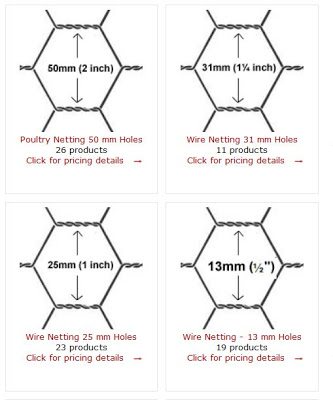
CHICKEN WIRE
Chicken wire, also known as hex netting, is a twisted steel wire mesh with hexagonal openings that can be galvanized or PVC coated.1 A hungry and determined predator, including but not limited to raccoons and some dogs, can tear through chicken wire with relative ease. It is not recommended as security fencing for chicken coops and runs.
Chicken wire is very flexible and good for making temporary structures designed to keep chickens confined, but it will not stop predators from gaining access to chickens.
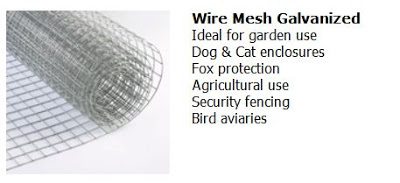
HARDWARE CLOTH
Hardware cloth is wire mesh that consists of either woven or welded wires in a square or rectangular grid that is available in galvanized, stainless steel and bare steel.2 It is manufactured from a stronger gauge metal than chicken wire, (the smaller the gauge, the stronger the mesh) making it a much better choice for flock protection. 1/2″ to 1/4″ galvanized hardware cloth is typically recommended for coops and chicken runs.

HARDWARE CLOTH INSTALLATION BEST PRACTICES
1. Bury hardware cloth to deter diggers. To protect chickens from predators such as raccoons and dogs, hardware cloth should be buried at least 12 inches into the ground around the perimeter of the coop and run OR buried underneath the floor of the coop and run.
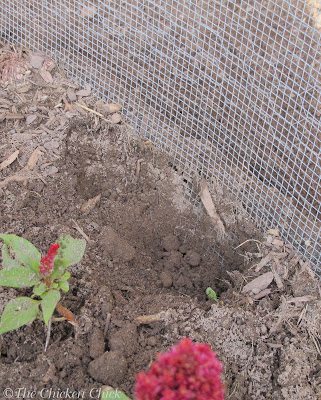
2. Cover all windows with hardware cloth.
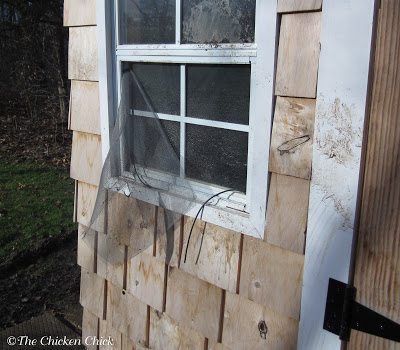
3. Secure hardware cloth with screws and washers. Staples are easily defeated by pushing or pulling.
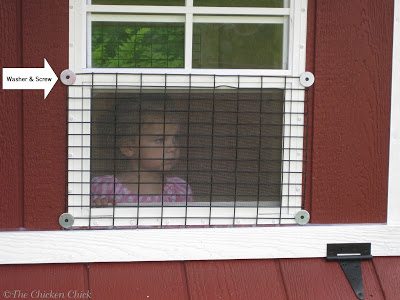
4. Seal all openings larger than one inch with hardware cloth. Minks and weasels can squeeze through very small openings and kill many chickens in a very short period of time.
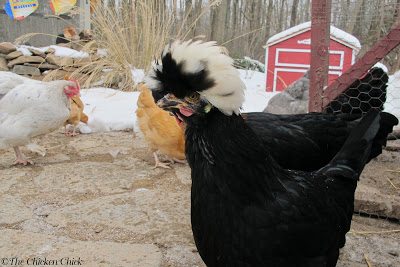
Sources:

1 Direct Metals
2 Direct Metals
Both illustrations of chicken wire and hardware cloth are from meshdirect.co.uk
Kathy Shea Mormino
Affectionately known internationally as The Chicken Chick®, Kathy Shea Mormino shares a fun-loving, informative style to raising backyard chickens. …Read on


shop my SPONSORS
Early in my chicken-keeping adventures, I learned the hard way that there is a big difference between chicken wire and hardware cloth. I now understand that chicken wire is intended to keep chickens confined to an area, not to prevent predators from reaching chickens. My failure to appreciate the differences prior to constructing our first run was costly and my hope is that others can learn from my mistake.
I was no more than 5 weeks into chicken-keeping when I saw the hawk pictured above, peering in at my new pets. Feeling confident that my flock was locked safely in their run, I dashed to grab my camera to snap this shot. What I did not know at that time was that he had already reached through the chicken wire with his razor-sharp talons, taking the life of one of my 5 week old Silkies. We immediately reinforced the run with hardware cloth and no predator has breached our coops’ security since then.
When considering fencing options for the coop and run, as a general rule, the smaller the openings and the lower gauge the metal, the better security it will provide. This hawk was able to reach in through the large holes of the chicken wire to grasp the chick, a feat he would not have succeeded in had there been hardware cloth in place. Hardware cloth is more expensive than chicken wire, but the initial investment is priceless given the heartache and financial losses it can ultimately prevent.

CHICKEN WIRE
Chicken wire, also known as hex netting, is a twisted steel wire mesh with hexagonal openings that can be galvanized or PVC coated.1 A hungry and determined predator, including but not limited to raccoons and some dogs, can tear through chicken wire with relative ease. It is not recommended as security fencing for chicken coops and runs.
Chicken wire is very flexible and good for making temporary structures designed to keep chickens confined, but it will not stop predators from gaining access to chickens.

HARDWARE CLOTH
Hardware cloth is wire mesh that consists of either woven or welded wires in a square or rectangular grid that is available in galvanized, stainless steel and bare steel.2 It is manufactured from a stronger gauge metal than chicken wire, (the smaller the gauge, the stronger the mesh) making it a much better choice for flock protection. 1/2″ to 1/4″ galvanized hardware cloth is typically recommended for coops and chicken runs.

HARDWARE CLOTH INSTALLATION BEST PRACTICES
1. Bury hardware cloth to deter diggers. To protect chickens from predators such as raccoons and dogs, hardware cloth should be buried at least 12 inches into the ground around the perimeter of the coop and run OR buried underneath the floor of the coop and run.

2. Cover all windows with hardware cloth.

3. Secure hardware cloth with screws and washers. Staples are easily defeated by pushing or pulling.

4. Seal all openings larger than one inch with hardware cloth. Minks and weasels can squeeze through very small openings and kill many chickens in a very short period of time.

Sources:

1 Direct Metals
2 Direct Metals
Both illustrations of chicken wire and hardware cloth are from meshdirect.co.uk





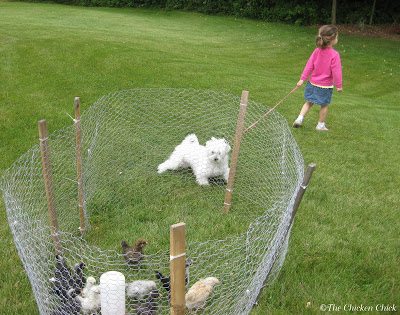







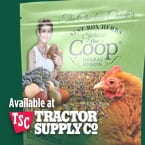

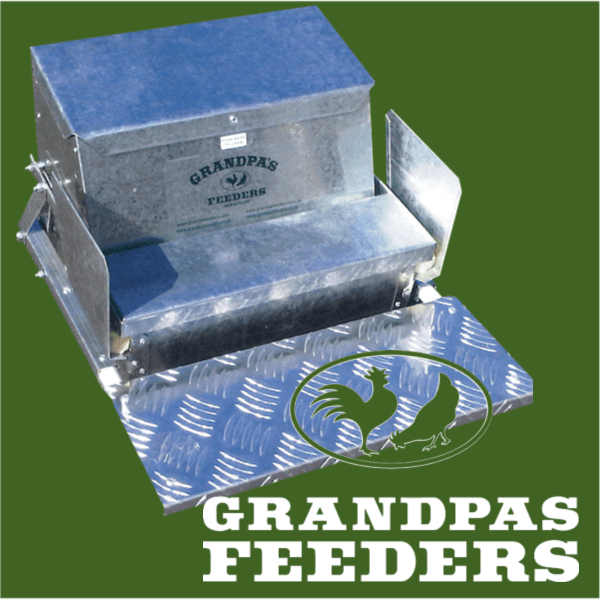


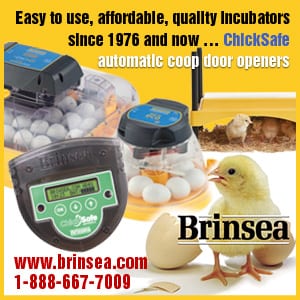



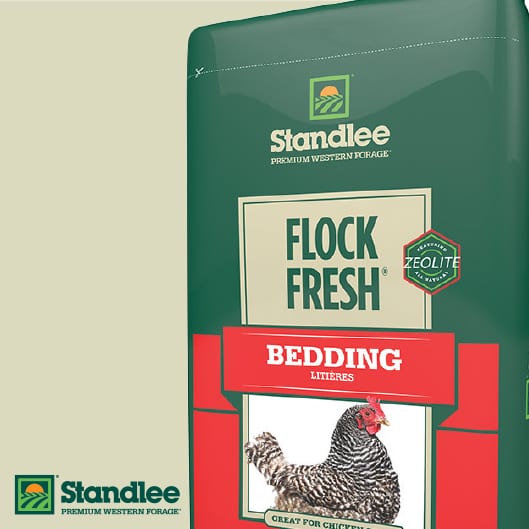


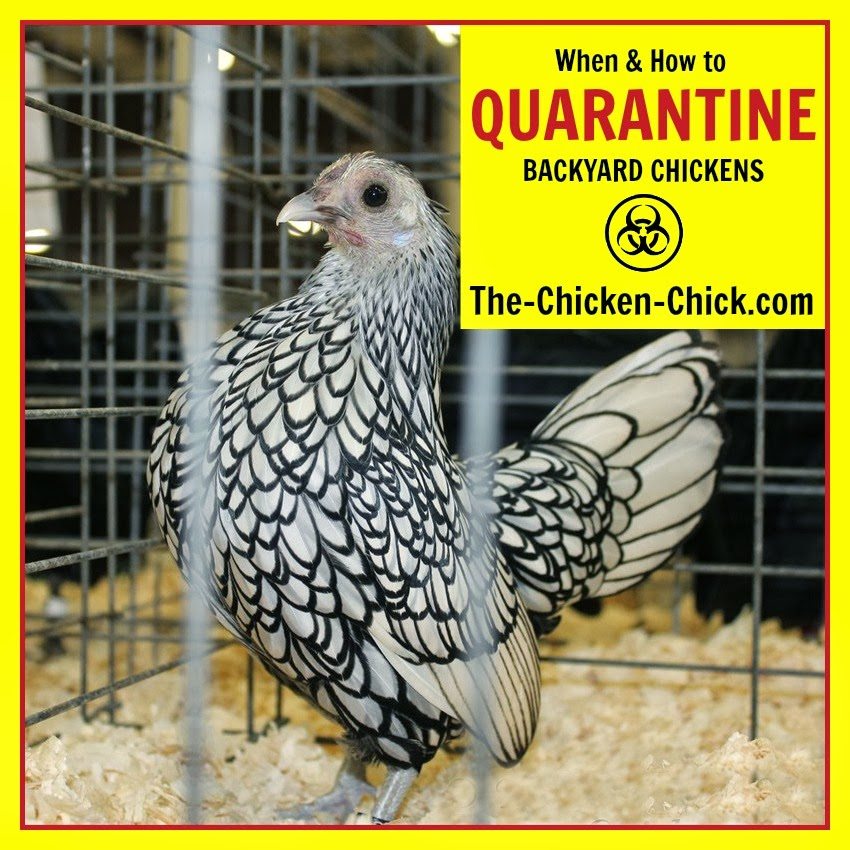













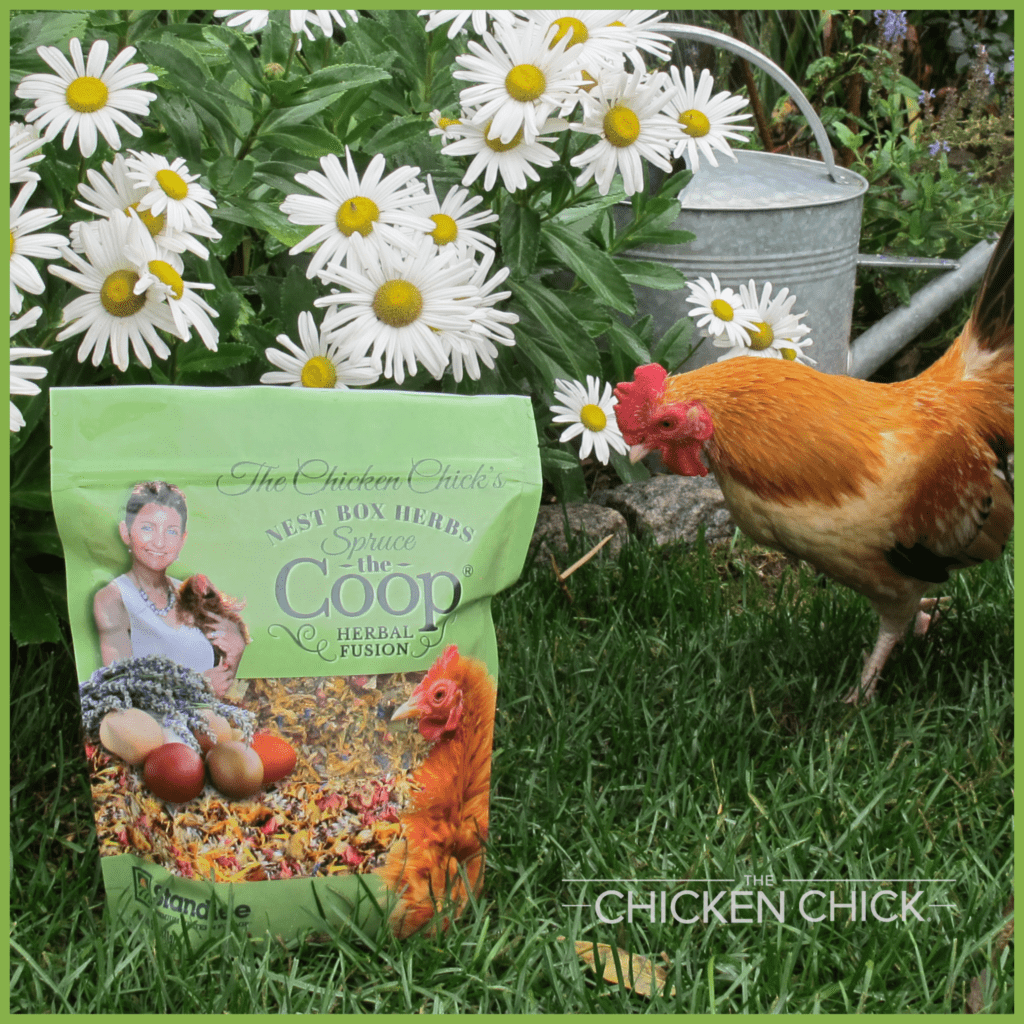

Great information! I have been worried about our chicken wire fencing a lot recently since we have seen a coyote tanning around and the owl babies are now beginning to take test flights right over the coop!
dsasadsad
I picked up a package of hardware cloth at the store and read the label. I’m a huge label reader…It said Ca. law says this product can cause cancer etc. I went home and looked up info on hardware cloth and it states that galvanized hardware cloth has zinc on it which is toxic…..so I am trying to find another source. I guess there is stainless steel hardware cloth but more expensive. I was wondering if you have info on this. Thanks so much.
While noisy; Guinea Hens attack hawks if thee can get to them. they fly really well and are able to go from ground to 30′ high in a hurry. I have personally seen them attack a Redtail Hawk at about 25 ft above the ground and about 10 Guineas struck it in succession in the distance from 25′ to ground level. there they nearly tore him /she a new one and it looked to have about 30% of it’s feathers gone when it got into the air again.
We had chicken wire for 20+ years. The chickens go in the coop at night.